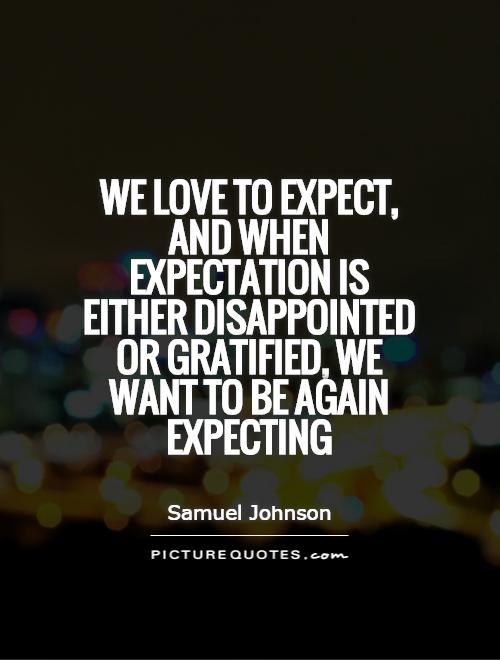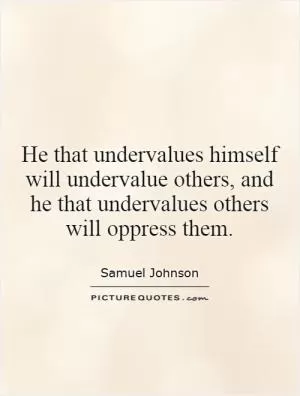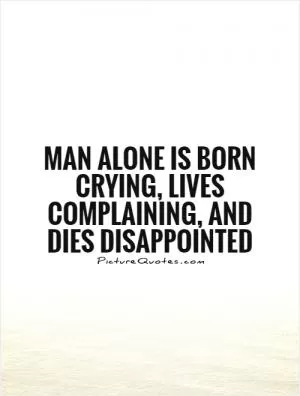We love to expect, and when expectation is either disappointed or gratified, we want to be again expecting

We love to expect, and when expectation is either disappointed or gratified, we want to be again expecting
Samuel Johnson, the renowned English writer and lexicographer, understood the power of expectation in shaping human behavior and emotions. In his famous quote, “We love to expect, and when expectation is either disappointed or gratified, we want to be again expecting,” Johnson captures the essence of human nature and the perpetual cycle of anticipation and fulfillment.Johnson believed that expectation is a fundamental aspect of human experience, driving our desires, motivations, and actions. We are constantly looking forward to future events, whether they be positive or negative, as a way to navigate through life and find meaning in our existence. The anticipation of something exciting or rewarding can bring us joy and excitement, while the fear of disappointment or failure can also fuel our expectations.
When our expectations are met, we feel a sense of satisfaction and fulfillment. This can reinforce our belief in the power of anticipation and encourage us to continue seeking out new experiences and challenges. On the other hand, when our expectations are disappointed, we may feel a sense of loss or disillusionment. However, this disappointment can also serve as a catalyst for growth and self-reflection, prompting us to reevaluate our goals and aspirations.
Johnson’s insight into the nature of expectation highlights the complex interplay between hope and reality in shaping our perceptions and emotions. We are constantly oscillating between the thrill of anticipation and the bittersweet taste of fulfillment, seeking out new experiences and challenges to keep the cycle of expectation alive.












 Friendship Quotes
Friendship Quotes Love Quotes
Love Quotes Life Quotes
Life Quotes Funny Quotes
Funny Quotes Motivational Quotes
Motivational Quotes Inspirational Quotes
Inspirational Quotes